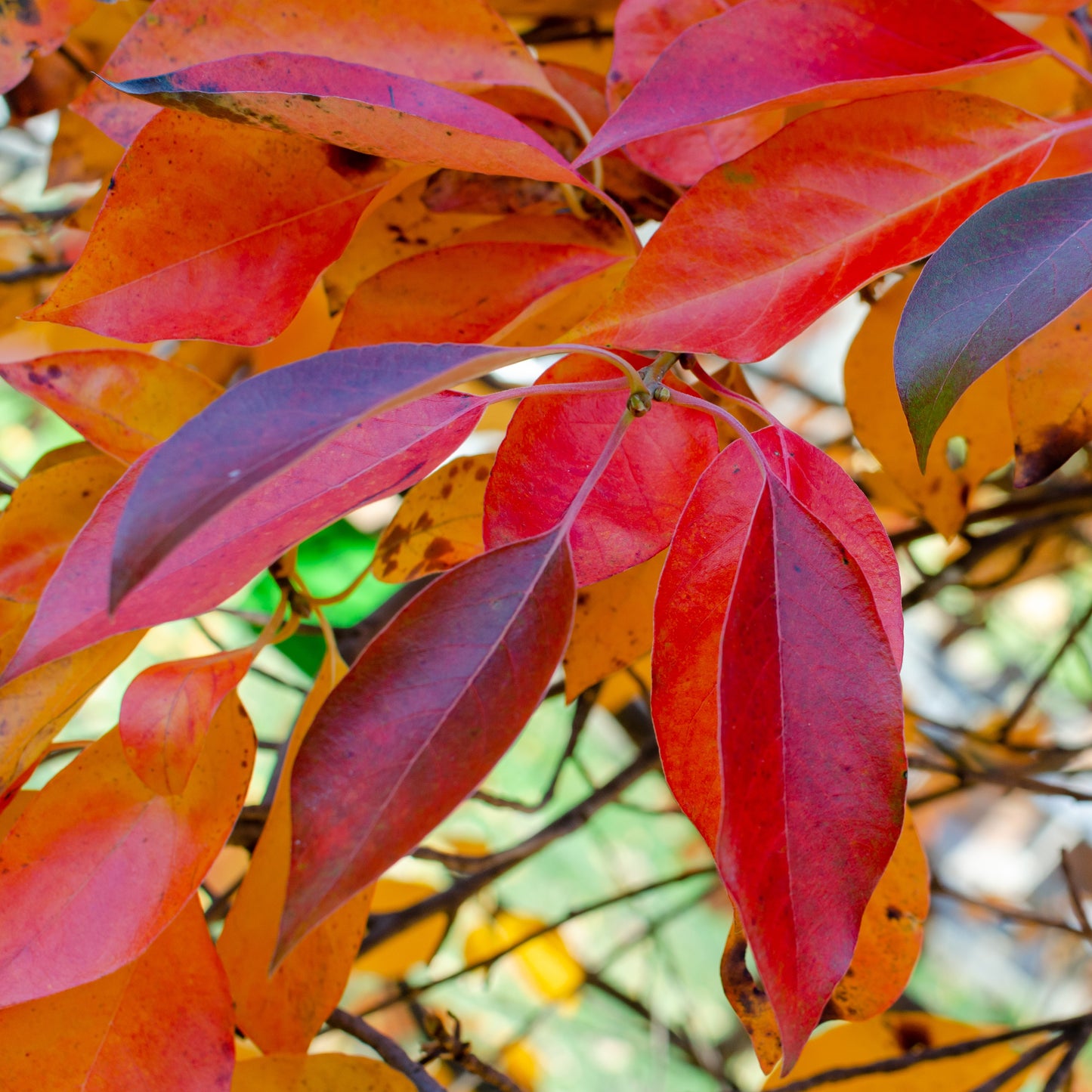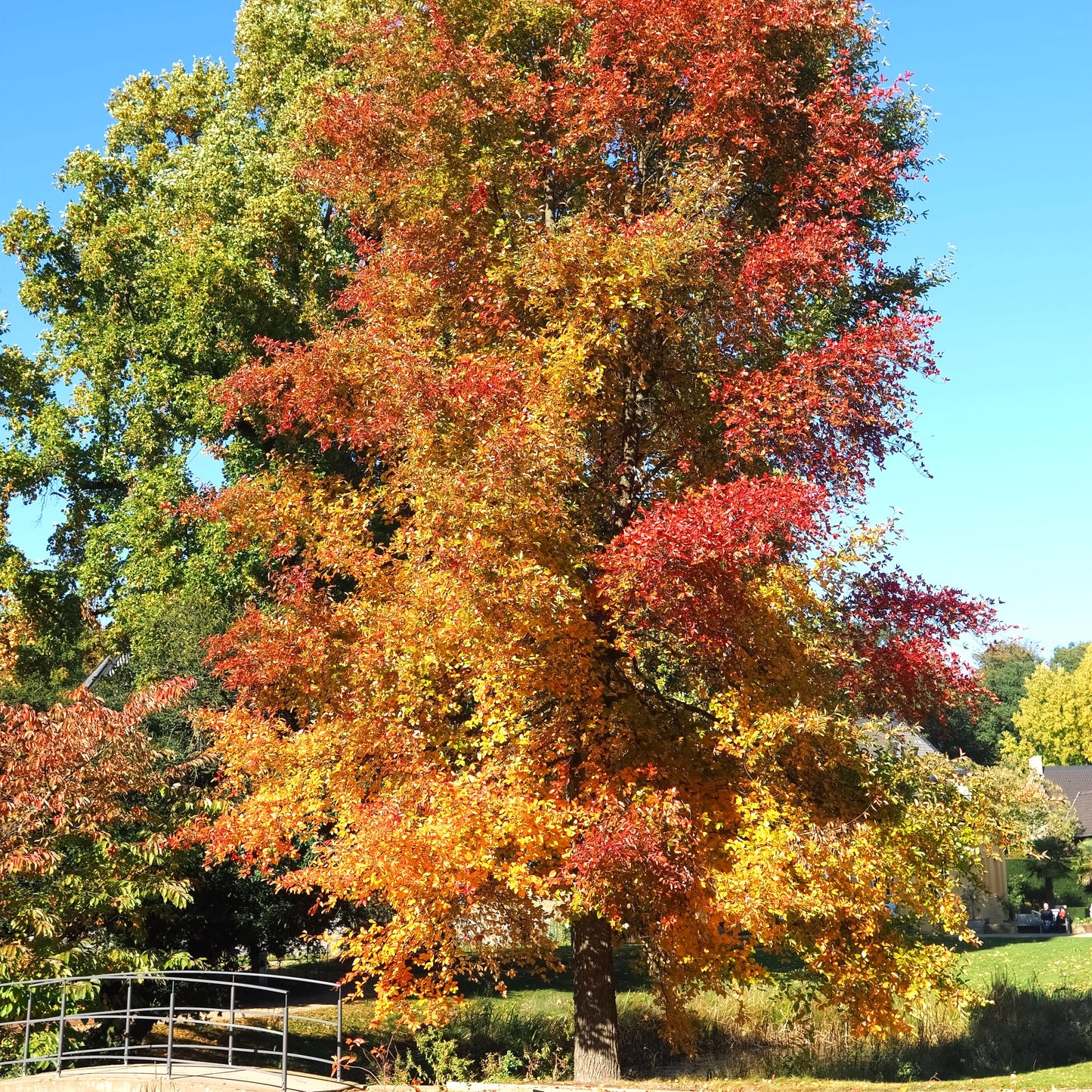Limited Quantities - Reserve Now For Fall
Black Gum Tree
Black Gum Tree
Couldn't load pickup availability
The Black Gum Tree also known as Black Tupelo, is a stunning, long-lived deciduous tree prized for its brilliant fall foliage, glossy green leaves, and ability to thrive in diverse conditions. With exceptional adaptability to wet and dry soils, strong resistance to pests and diseases, and excellent wildlife benefits, the Black Gum is a superb choice for shade, ornamental beauty, and ecological restoration.
Black Gum Tree
| Attribute | Details |
|---|---|
| Variety | Rooted |
| Botanical Name | Nyssa sylvatica |
| Common Names | Black Gum, Black Tupelo, Sour Gum, Pepperidge Tree |
| Mature Height | 30-50 feet (can reach up to 75 feet in ideal conditions) |
| Mature Width | 20-30 feet |
| Growth Rate | Slow to Moderate (1-2 feet per year) |
| Lifespan | 150-200+ years |
| USDA Hardiness Zones | 4-9 |
| Sun Preference | Full sun to partial shade |
| Soil Type | Well-drained, loamy, sandy, or clay soils |
| Soil pH | Acidic to neutral (5.0-7.0) |
| Water Needs | Moderate; tolerates wet and dry soils once established |
| Flowering Season | Spring (April-May) |
| Flower Color | Small, inconspicuous greenish-white flowers |
| Fruit | Small blue-black drupes (fall) |
| Fall Foliage | Brilliant red, orange, yellow, and purple |
| Wildlife Attraction | Birds, bees, butterflies, deer, small mammals |
| Growth Habit | Pyramidal when young, developing an irregular, spreading canopy with age |
| Self-Pollinating? | Yes |
| Landscape Uses | Shade tree, wildlife habitat, erosion control, ornamental planting, urban landscapes |
| Maintenance Level | Low |
Environmental Benefits
🍂 Incredible Fall Color – One of the most stunning fall foliage trees, with shades of red, orange, yellow, and purple.
🌎 Pollinator & Wildlife Support – Produces nectar-rich flowers for bees and butterflies, while its blue-black fruit feeds birds, deer, and small mammals.
🌿 Erosion Control & Soil Stability – Thrives in lowlands, riverbanks, and slopes, helping prevent soil erosion and stabilize landscapes.
🌳 Urban Resilience & Air Purification – Absorbs carbon dioxide and filters pollutants, making it ideal for urban planting and improving air quality.
Pros & Cons
| Pros | Cons |
|---|---|
| Stunning multi-colored fall foliage | Slow to moderate growth rate, requiring patience |
| Highly adaptable to various soil and moisture conditions | Can develop deep taproots, making transplantation difficult once mature |
| Provides food and shelter for birds, pollinators, and wildlife | Requires consistent moisture when young for best establishment |
| Resistant to most pests and diseases | Fruit can be messy if planted near walkways or patios |
| Long lifespan, making it an excellent legacy tree | May require occasional pruning to maintain shape |
Planting & Care Guide
- Spacing: Plant 20-30 feet apart to allow for full canopy development
- Soaking: Soak roots in water for 6-12 hours before planting
- Planting Depth: Dig a hole twice the width of the root system, ensuring roots are level with the soil surface
- Mulching: Apply a 2-3 inch layer of mulch to retain moisture and suppress weeds
- Pruning: Minimal pruning required; remove dead branches in late winter or early spring
- Fertilization: Apply a slow-release fertilizer in early spring to promote healthy growth
- Watering: Water deeply 2-3 times per week during the first year, then reduce as the tree matures
The Black Gum Tree is a stunning, resilient, and ecologically valuable tree that provides year-round beauty, shade, and wildlife benefits. Whether planted for its dazzling fall foliage, pollinator-friendly flowers, or erosion control capabilities, this long-lived and low-maintenance tree is an excellent investment for any landscape.
Share




